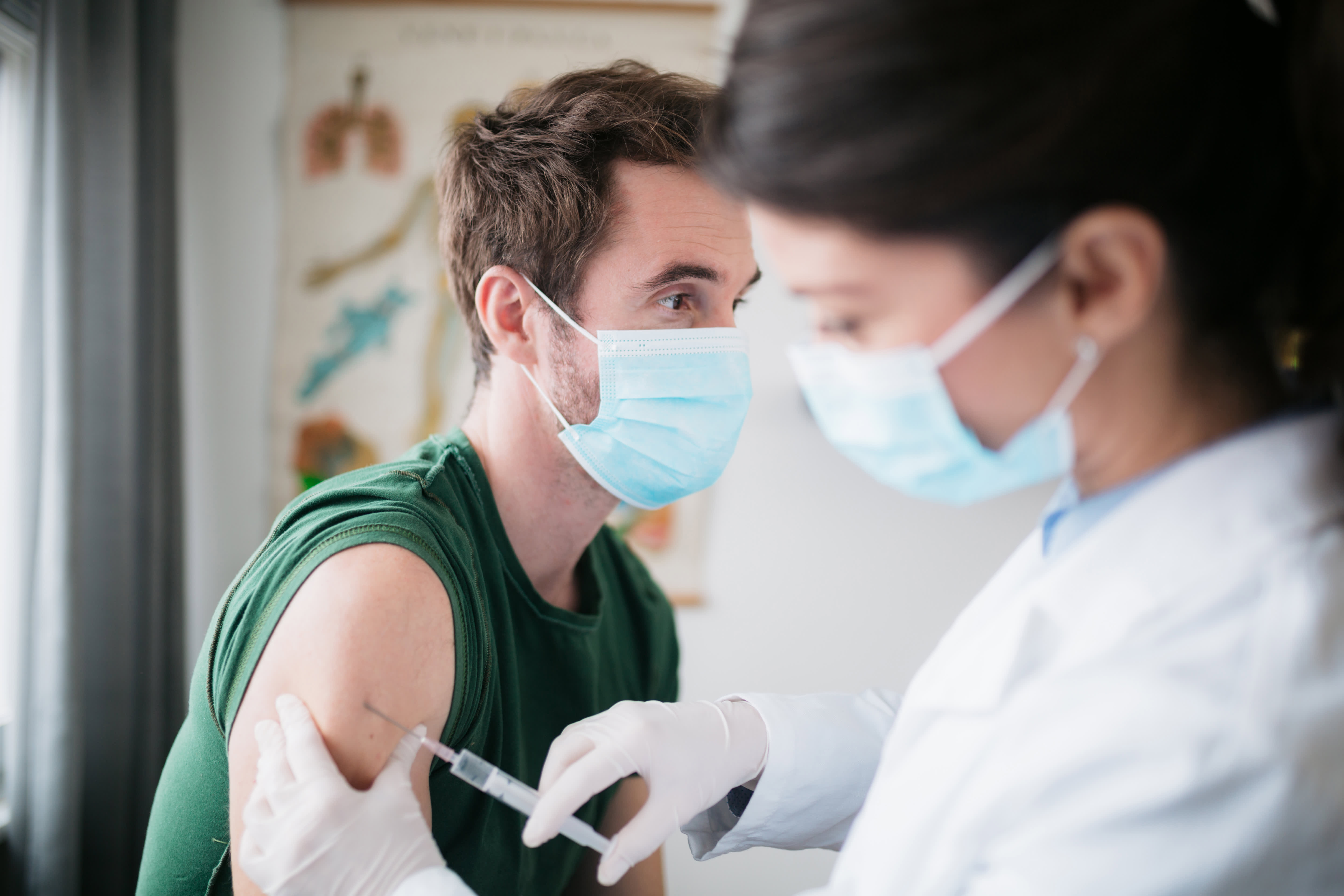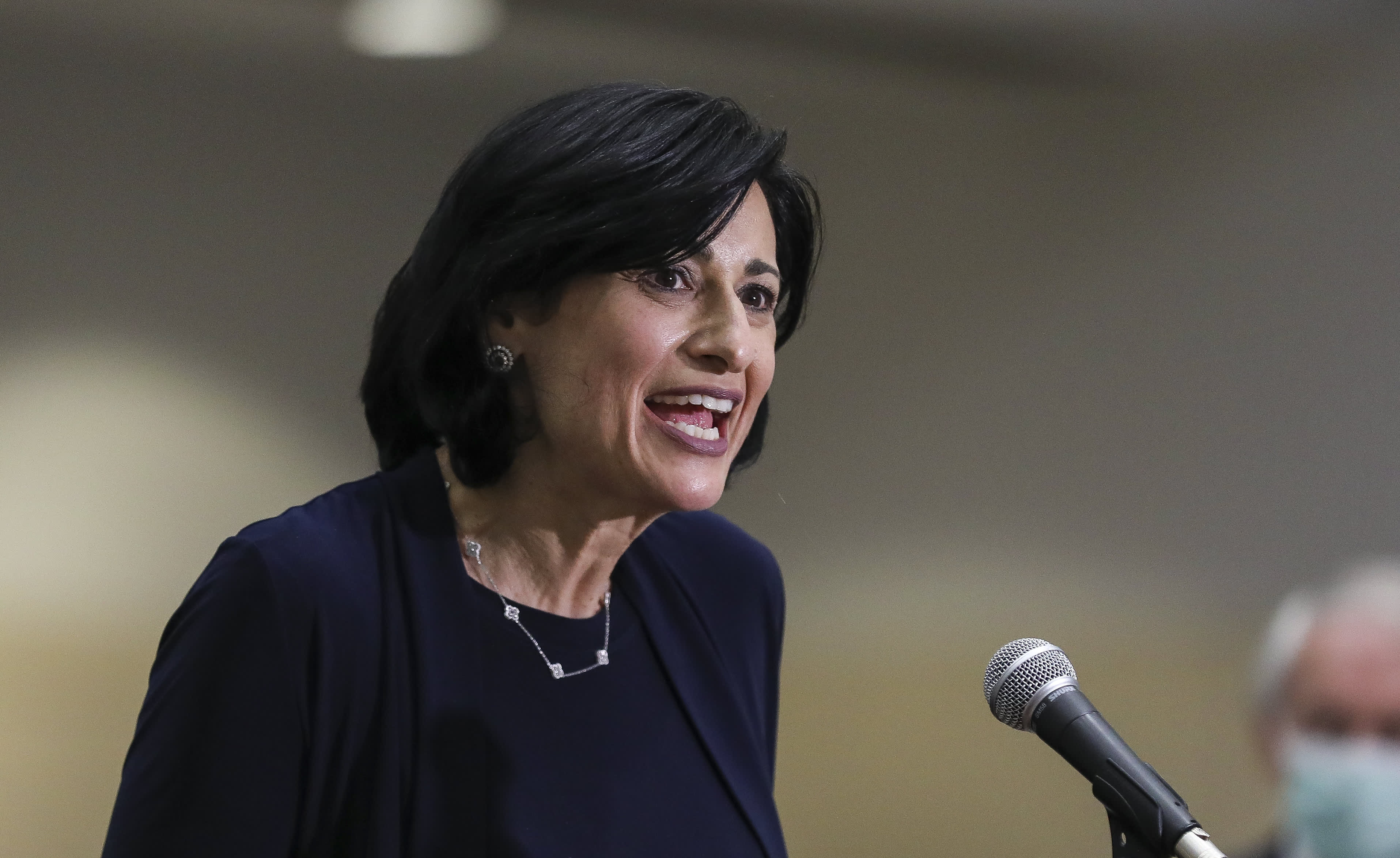Those who got the Johnson & Johnson COVID vaccine have not yet been eligible for a booster dose, despite many who got the Pfizer vaccine and even some who received the Moderna shots being eligible, but could that soon change?
Johnson & Johnson asked the Food and Drug Administration on Tuesday to allow extra shots of its COVID-19 vaccine as the U.S. government moves toward expanding its booster campaign to millions more vaccinated Americans.
Here's what we know so far:
Can I get a booster shot of the Johnson & Johnson vaccine now?
Feeling out of the loop? We'll catch you up on the Chicago news you need to know. Sign up for the weekly Chicago Catch-Up newsletter here.
If you received the Johnson & Johnson vaccine, the answer to this question so far is no.
While many with compromised immune systems who received Pfizer's or Moderna's vaccines have been eligible for booster doses, the FDA and CDC’s approval and recommendation for immunocompromised individuals does not apply to those who got the Johnson & Johnson vaccine.
Last month, the FDA authorized booster shots of Pfizer’s vaccine for older Americans and other groups with heightened vulnerability to COVID-19, but that authorization also did not apply to J&J recipients.
Government advisers backed the extra Pfizer shots, but they also worried about creating confusion for tens of millions of other Americans who received the Moderna and J&J shots. U.S. officials don't recommend mixing and matching different vaccine brands.
When might I be able to get a booster shot?
The FDA is convening its outside panel of advisers next week to review booster data from both J&J and Moderna. It’s the first step in a review process that also includes sign-off from the leadership of both the FDA and the Centers for Disease Control and Prevention. If both agencies give the go-ahead, Americans could begin getting J&J and Moderna boosters later this month.
J&J previously released data suggesting its vaccine remains highly effective against COVID-19 at least five months after vaccination, demonstrating 81% effectiveness against hospitalizations in the U.S.
But company research shows a booster dose at either two or six months revved up immunity even further. Data released last month showed giving a booster at two months provided 94% protection against moderate-to-severe COVID-19 infection. The company has not yet released clinical data on a six-month booster shot.
FDA's advisers will review studies from the company and other researchers next Friday and vote on whether to recommend boosters.
The timing of the J&J filing was unusual given that the FDA had already scheduled its meeting on the company's data. Companies normally submit their requests well in advance of meeting announcements. A J&J executive said the company has been working with FDA on the review.
“Both J&J and FDA have a sense of urgency because it’s COVID and we want good data out there converted into action as soon as possible,” said Dr. Mathai Mammen, head of research for J&J's Janssen unit.
If I got the Moderna or J&J vaccine should I get a booster shot of the Pfizer vaccine?
Federal experts have indicated the Pfizer shots would not be recommended for people who got a different brand of vaccine initially.
Chicago's top doctor has also said the answer to that question is likely no.
"If I had gotten the Moderna vaccine, I would not personally - I would not go and get a Pfizer booster," she said. "Right now, our biggest priority is the people who are not even vaccinated at all, in terms of dropping the risk for everybody - even people who are vaccinated, continuing to keep the focus on people getting their first and second doses of vaccine is the most important thing."
For those who received the Moderna or Pfizer vaccine, the CDC says "a third dose of the same mRNA vaccine should be used."
"A person should not receive more than three mRNA vaccine doses. If the mRNA vaccine product given for the first two doses is not available or is unknown, either mRNA COVID-19 vaccine product may be administered," the agency's website states.
Dr. Anthony Fauci said last Tuesday that safety and efficacy data on mixing and matching COVID vaccines with boosters could be available within the following two weeks.
"As with all things we do, they must be submitted to the FDA for their regulatory approval," Fauci said of the so-called mix-and-match trials. "So you don't want to get ahead of the FDA, but at least that's where the data are right now."
But data on Johnson & Johnson's mix-and-match study could be ready within a week, while Pfizer's trial might be completed by mid-October. Moderna's mix-and-match study data is already available, Fauci added.



